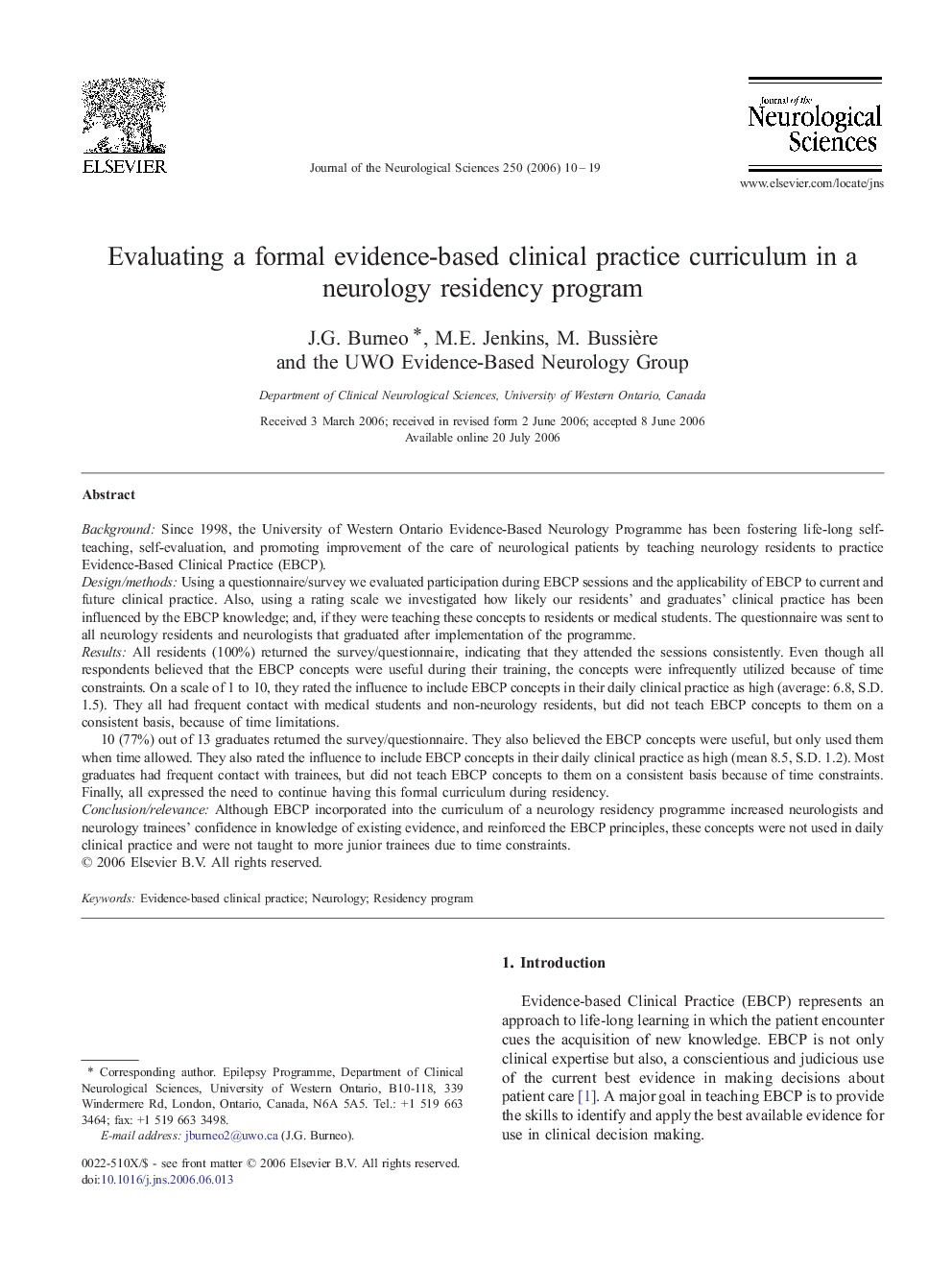| کد مقاله | کد نشریه | سال انتشار | مقاله انگلیسی | نسخه تمام متن |
|---|---|---|---|---|
| 1916493 | 1535211 | 2006 | 10 صفحه PDF | دانلود رایگان |

BackgroundSince 1998, the University of Western Ontario Evidence-Based Neurology Programme has been fostering life-long self-teaching, self-evaluation, and promoting improvement of the care of neurological patients by teaching neurology residents to practice Evidence-Based Clinical Practice (EBCP).Design/methodsUsing a questionnaire/survey we evaluated participation during EBCP sessions and the applicability of EBCP to current and future clinical practice. Also, using a rating scale we investigated how likely our residents' and graduates' clinical practice has been influenced by the EBCP knowledge; and, if they were teaching these concepts to residents or medical students. The questionnaire was sent to all neurology residents and neurologists that graduated after implementation of the programme.ResultsAll residents (100%) returned the survey/questionnaire, indicating that they attended the sessions consistently. Even though all respondents believed that the EBCP concepts were useful during their training, the concepts were infrequently utilized because of time constraints. On a scale of 1 to 10, they rated the influence to include EBCP concepts in their daily clinical practice as high (average: 6.8, S.D. 1.5). They all had frequent contact with medical students and non-neurology residents, but did not teach EBCP concepts to them on a consistent basis, because of time limitations.10 (77%) out of 13 graduates returned the survey/questionnaire. They also believed the EBCP concepts were useful, but only used them when time allowed. They also rated the influence to include EBCP concepts in their daily clinical practice as high (mean 8.5, S.D. 1.2). Most graduates had frequent contact with trainees, but did not teach EBCP concepts to them on a consistent basis because of time constraints. Finally, all expressed the need to continue having this formal curriculum during residency.Conclusion/relevanceAlthough EBCP incorporated into the curriculum of a neurology residency programme increased neurologists and neurology trainees' confidence in knowledge of existing evidence, and reinforced the EBCP principles, these concepts were not used in daily clinical practice and were not taught to more junior trainees due to time constraints.
Journal: Journal of the Neurological Sciences - Volume 250, Issues 1–2, 1 December 2006, Pages 10–19